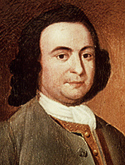
This president— who today begins his second term in office —never has been the leader to competently unify our country. He merely has been clever enough to prevent anyone else from doing so. He has blunted the ambition of his rivals (the Clintonians) and kept his opponents fragmented (the Republicans), without offering serious solutions to grave problems or paving the way for someone who will. His emphasis on “We” must be interpreted in the context of his purposeful rhetoric of condescension, exclusion, and division. The feel-good unity of “We the People” is actually a call for solidarity within his collectivist coalition and a message to those who disagree with his priorities and policies to fall in line or back out of the national conversation.
 because those who framed the Bill of Rights did not find the deterrent a bad precaution, as tiresome as it may seem at times.
because those who framed the Bill of Rights did not find the deterrent a bad precaution, as tiresome as it may seem at times.